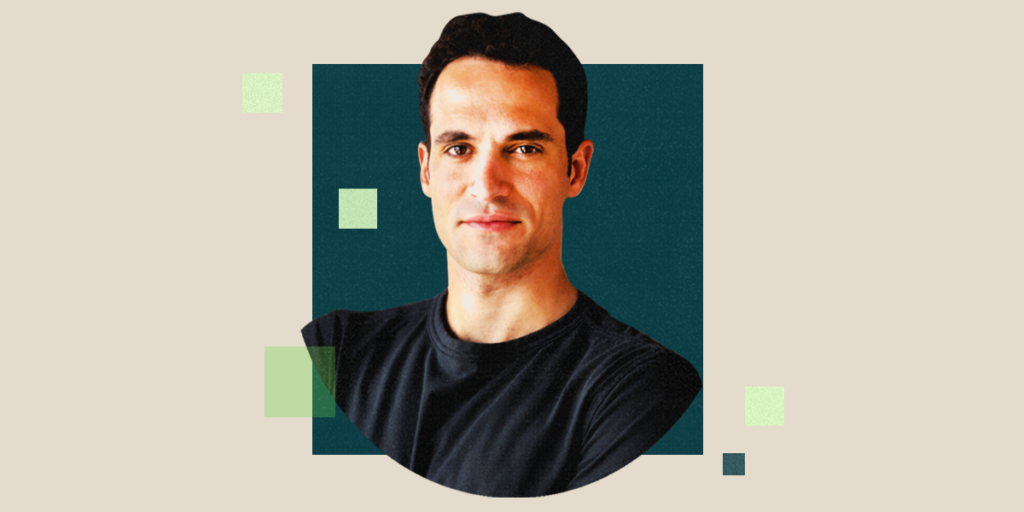- Whoop CEO Will Ahmed discussed how he thinks about productivity and the future of work.
- Whoop encourages employees to look after their health, including by meditating.
- This story is part of "What's Next," a series about business leaders' strategies for workplace productivity.
The impact of remote work and artificial intelligence on jobs has never been more under the microscope.
One company thinking about this is Whoop, a Boston healthtech startup that makes a popular wearable health tracker. The company has tried to differentiate itself in a busy wearables market by targeting athletes and serious fitness enthusiasts. As its CEO, Will Ahmed, puts it, Whoop aims to "unlock human performance."
In 2021, the company raised $200 million at a $3.6 billion valuation, in a funding round led by SoftBank Vision Fund 2. Whoop, which was founded 12 years ago, has about 500 employees, a spokesperson said.
Business Insider spoke with Ahmed about how he thinks about productivity at the company. Here are five key takeaways from the interview.
Ahmed believes that in-person work is best — but that location and well-being are important
"We have a clear point of view that in-office work almost always leads to more productivity," Ahmed said. "We've seen how collaborating in the office has positively contributed to performance."
Ahmed said he also thought carefully about the locations of Whoop's offices. Whoop's global headquarters in Boston is close to Fenway Park and some of "the best hospitals in the United States," he said.
"We're literally in the center of the most influential health, fitness, and performance advancements in the world," he said.
Whoop also believes employees are more productive when they look after their physical and mental health. Last year the company opened an office in Boston's Kenmore Square that includes designated areas for staffers to relax and meditate.
"We want Whoop to be a place where our team loves to come to work," Ahmed said. "We like to practice what we preach by encouraging employees to take the best possible care of their physical and mental health with flexible vacation time and innovative wellness benefits."
Nurturing new hires and hearing user feedback are key
Ahmed said he likes to meet with employees to discuss the feedback they get from Whoop users.
"Every week during our company lunch, we share testimonials we've received about how Whoop has saved lives and helped people achieve their goals," Ahmed said.
Ahmed also said he takes time to sit down and talk with new employees at the company and learn why they joined.
"Whoop has grown, and over time these welcome sessions have grown larger," he said. "But they've also become more important."
Whoop pays bonuses to employees who sleep more
It's probably not surprising that a startup like Whoop tries to encourage its employees to live healthier lives.
All employees are given a Whoop band and membership, as well as an additional band to give to a loved one.
"It's important to us that every member of our team has a deep appreciation for our technology," Ahmed said.
His favorite perk is that the company pays its employees to sleep more.
"This is about practicing what we preach," Ahmed said. "Any employee whose average sleep performance is 85% or more receives $100 each month."
Employees are encouraged to use AI tools at work
Whoop has been thinking about AI for a while. Last year it launched Whoop Coach, a personalized fitness AI coach, in partnership with OpenAI.
"Every member of our team is encouraged to use approved AI tools in their work," Ahmed said. "We have a stellar team at Whoop, but using these tools just enhances their productivity."
Ahmed said OpenAI can't store or use any of the anonymized data it gets from Whoop to train its own AI models. He added that Whoop doesn't allow other AI apps to use its membership data without authorization.
Ahmed doesn't want to lose the advantage of being nimble
Ahmed said he liked to embrace the advantages of being a relatively small company, including the autonomy it gives teams.
"Many startups are in a race to become a big company and in the process lose sight of the advantages of being smaller and more nimble," he said.
"Lots of big companies lose sight of what matters," he added. "We're not letting that happen at Whoop."

